
IFSC Commentator Charlie Boscoe reports on the first two events in the Austria Climbing Summer series, giving an insight into what climbing competitions look like in the COVID-19 era...
Something vaguely resembling normality returned to the climbing world over the past couple of weeks as competitions resumed in Innsbruck. The Austrian Climbing Summer Series is the first set of comps (that I'm aware of) taking place in the post-lockdown coronavirus era and it got underway on 8/9 July with round 1 of the Boulder series and round 2 the following week. I was asked to do the commentary for the events and figured it would be interesting to report back on what this new world looks like and explain what's changed.
The simple answer is "a lot, and not much at all." When I re-watched the livestreams the images look familiar and it was actually quite hard to tell that we were broadcasting from a fundamentally different world to the one we inhabited when I covered the PanAmerican Championships in February. As with the CWIF (which took place in March without spectators), the competitions look pretty similar to how they always have, with the same climbers wearing the same outfits and climbing on the same types of boulders. About the only visual difference was that each climber was given a brush at the start of each round and they then used it for the rest of the round before handing it over to be disinfected and passed on; brushers would appear to have been furloughed for the foreseeable future. Competitors also had to wear masks during observation. However, dig a little deeper and things couldn't be much more different.
The first thing that struck me when I went down to the Innsbruck Kletterzentrum to watch qualifying on day 1 was that it was nice to see so many familiar faces, but that it was frustrating not actually being able to talk to them properly. Hannah Schubert was manning the reception desk and she (wearing a mask) gave me one of those weird elbow bumps that we all seem to be doing now and then showed me to my assigned seat. The chairs were all labelled for a specific individual and for some reason I was asked to sit in one labelled for (tall, good looking and muscular) Speed climber, Danyil Boldyrev. Cue several muttered comments from those around me that Danyil had had a pretty rough lockdown given that he'd lost his hair, 20 kgs of muscle and about 8 inches in height. The rugged good looks remained.
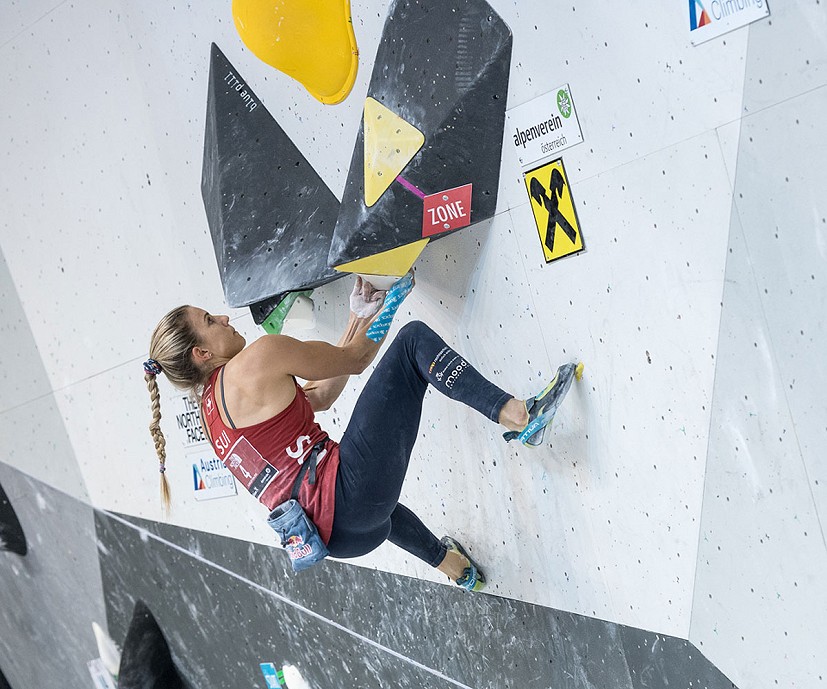
There were loads of people I hadn't seen for ages, but I'd been asked to stay where I was so I was restricted in whom I could chat to, but it was still nice to catch up with Team Germany coach Urs Stöcker and a couple of other folk in my vicinity. The weird thing about chatting was that we were all subconsciously doing it in hushed tones because the venue was so quiet that you just automatically whisper to each other. Very strange indeed. The Austria Climbing guys had actually hired a venue MC, but he was understandably pretty quiet and didn't break the silence often. Live MCing for a Boulder qualifier in front of an empty arena - now there's a tough gig.
The next day we were broadcasting live and the venue was empty again, save for officials, coaches, media and a couple of very bored-looking paramedics. The climbers weren't even allowed to watch each other's finals so as each semi-final progressed the "crowd" would double in size as climbers came off the wall and made their way to a (specific and socially distanced) chair in the arena. When it came to the finals the same rules applied, so after the women's final all the competitors had to vacate the arena to make way for the men.
And so, on to the action. I thought that the semi finals were really entertaining and there were strong lineups on both the men's and women's sides. It was agreed before the event that Switzerland and Germany could each bring a maximum of 4 competitors per gender to the competition, so although Austrians obviously made up the majority of the entrants, it was great to see other countries represented. Switzerland brought the big guns, with Petra Klinger and Sascha Lehmann taking part, but the Germans brought relatively young climbers on whole so we had some interesting subplots to follow as the action unfolded.
The women's semi was set perfectly, with the top 3 climbers getting 4 tops, 2 climbers getting 3 tops and Mattea Pötzi (AUT) sneaking into the final in 6th place with 2 tops and 4 zones. Most of the big names made the final, including World Champions Jessy Pilz (AUT) and Petra Klingler (SUI) and Youth Olympic Champion Sandra Lettner (AUT). They'd be joined there by the aforementioned Mattea, previous World Cup finalist Johanna Färber (AUT) and youngster Eva Maria Hammelmüller (AUT), who "won" both the qualifying and semi-final rounds.
The men's semi was pretty spot on too, with the cut-off for making the final being 2 tops and 4 zones. There were a few more surprises than in the women's event, with World Championship bronze medallist Yannick Flohé (GER) missing out on the final, but his relatively young unknown compatriots Philipp Martin, Christoph Schweiger and Max Kleesattel all getting through. Joining them would be Austria's Stephan Rest and Jakob Schubert, as well as Sascha Lehmann.
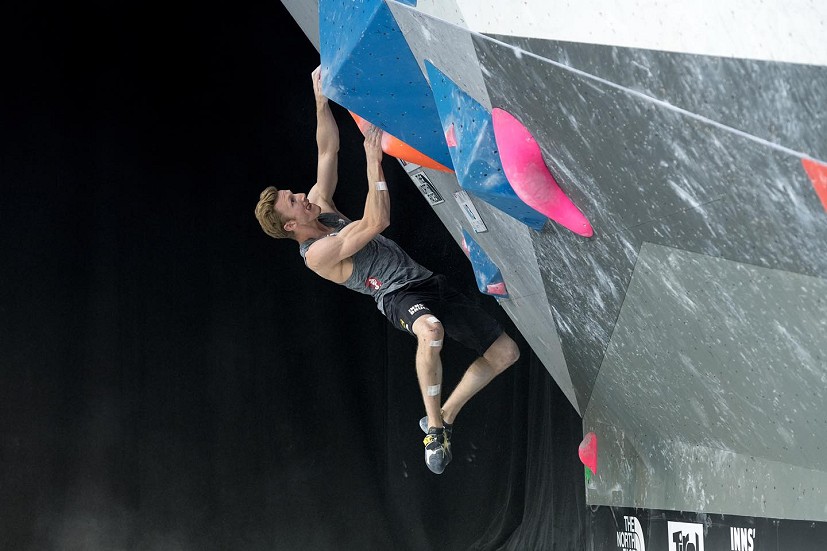
As part of the corona-related regulations we had the men's and women's finals separately to ensure that distance could always be maintained, so I was glad that both of them were so well set - over 4 hours of semi finals could quickly become a little dry if the routesetters had got it wrong.
Much as the semis had been thoroughly entertaining, both finals felt slightly slow to me, with a few of the boulders not really working as the routesetters had envisioned. We had some really spectacular tops, but there was also quite a lot of standing around and head scratching as climbers tried to figure out what to do. It's rare that every boulder works perfectly, so maybe it was just me, or maybe it was the lack of a crowd, but the finals felt ever so slightly anticlimactic. I have to say that the ability of the setters to judge the current climbing level of the athletes was extraordinary given that they've seen so little of them recently, but it also became clear that despite their good work, a crowd brings an energy to a final that you just can't replicate. If you get someone good doing the MCing and the crowd are into it, they can actually keep the energy up even when there's nothing happening on the wall, and I personally really missed having spectators for the final. Still, just watching the world's best do their thing was wonderful after such a long break.
By the time the dust finally settled on a 13+ hour day of competition, Austria had two winners. Jakob Schubert took victory on the men's side (it takes more than a global pandemic to change that) and over on the women's side Johanna Färber closed it out to take the win. Given the calibre of her competition it was a particularly impressive performance, and her compatriot Eva Maria Hammelmüller didn't do too badly either by taking second. Petra Klingler, meanwhile, looked satisfied but not overjoyed with the bronze medal.
In the men's final, Jakob looked like the force of nature he always does. There was definitely a bit of rustiness in his performance, but if you can be frustrated with your climbing, miss a few good opportunities and still win, you're not doing badly. I reckon that with a few more comps under his belt, he'll be back to his usual self and he remains my bet for Olympic gold next year. I actually had quite an amusing moment when I was walking through the Kletterzentrum an hour or so before the men's final and saw Jakob climbing around on the boulders in amongst the general public. Only in climbing could the world's best be in there with punters like me - it's a bit like having a beer in a park before a Barcelona game and watching Messi do keepy-ups next to you.
Close behind Jakob were the German trio of (in descending order) Philipp Martin, Christoph Schweiger and Max Kleesattel. The climbing futures of both Austria and Germany would appear to be very bright given how impressively their younger athletes managed to deal with this level of competition.
Week 1
Men
1. Jakob Schubert (AUT)
2. Philipp Martin (GER)
3. Christoph Schweiger (GER)
Women
1. Johanna Färber (AUT)
2. Eva-Maria Hammelmüller (AUT)
3. Petra Klingler (SUI)
The next week we were back at the Kletterzentrum to do it all over again, with round 2 of the Summer Series following the exact same format as round 1.
In the men's semis it was "as you were", with the 4 of the 6 finalists from week 1 (Jakob, Sascha, Max and Stephan) in the final again in week 2. Kim Marschner (GER) and Georg Parma (AUT) took the other 2 slots after an entertaining semi-final. The women's semi final was a little too easy, and Julia Fiser and Lea Kempf (both AUT) could consider themselves hard done by to finish 7th and 8th having both got 4 tops in the semis, but requiring too many attempts to get them. Both semis were fun to watch though and the women's round also produced a very similar result to week 1, with 5 climbers making it into their second final in 2 weeks, the only change being Lucia Dörffel (GER) getting through instead of Mattea Pötzi.
In contrast to the previous week, both finals were excellent, and the drama was maintained right until the end. On the men's side, Georg Parma's top of Boulder 1 (the only top it got) was crucial and netted him a win - a nice outcome after a struggle with injury for most of last season. Sascha Lehmann picked up silver and Jakob Schubert got the bronze medal. Knowing Jakob's competitive fire, I suspect he doesn't value anything made of bronze or silver much, but a win and a 3rd place in these two events represents a good return to competition for him.
On the women's side the final looked fiercely competitive, but in the semis Johanna Färber and Petra Klingler did look a notch above everyone else. In the end, the final did come down to those two and they both topped every boulder (as they had in every other round too) but - crucially - Johanna did them a bit quicker, and as a result took her second gold medal in the space of a week. After week 1 I figured that Johanna was a serious contender, but for her to beat such strong fields two weeks running means that she's now a bona fide threat at World Cup level. Now, if we could just get some World Cups to prove that theory, that would be great…
In the commentary box for both days I had the extraordinary good fortune to be joined throughout by local legend and 22-time World Cup winner Anna Stöhr. I find talking (semi) coherently for 8 hours per day a real challenge and for Anna to do it in her second language whilst adding so much insight and interest is incredibly impressive. Before each broadcast she'd do a live interview on Austrian TV in German, run across the venue and then sit down with me to talk live in English for 2+ hours. I have to say that I'm slightly starstruck around Anna having watched her on TV for years and been there in person for some of the big performances in the last couple of years of her career. A couple of times during the broadcasts I looked over and thought,"Sh*t! It's Anna Stöhr!" but she's so friendly and devoid of ego that it was easy at times to forget who I was sitting next to. Anna has done a fair bit of broadcasting down the years; she's absolutely superb at it, and it was a real treat for me to get the chance to pick her brains for a couple of days.
Next up is the Lead part of the Summer Series. There will be two events a couple of days apart on the famous Kletterzentrum Imst wall, which has hosted many a World Cup down the years. I'll be working on the events, so I'll report back from them in a couple of weeks.
Week 2
Men
1. Georg Parma (AUT)
2. Sascha Lehmann (SUI)
3. Jakob Schubert (AUT)
Women
1. Johanna Färber (AUT)
2. Petra Klingler (SUI)
3. Jessy Pilz (AUT)
Watch the replays of the semis and finals from both weeks on Austria Climbing's YouTube channel, linked below:

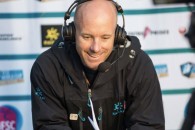

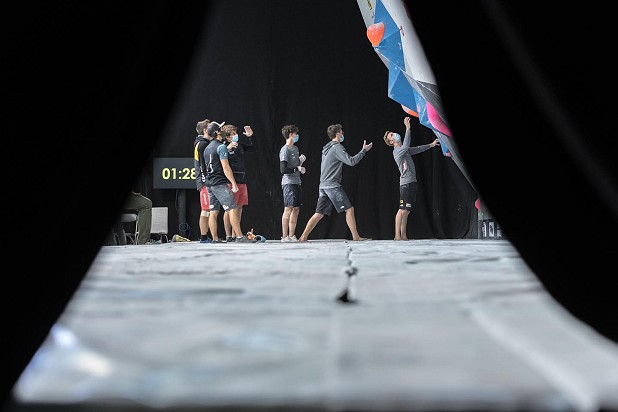
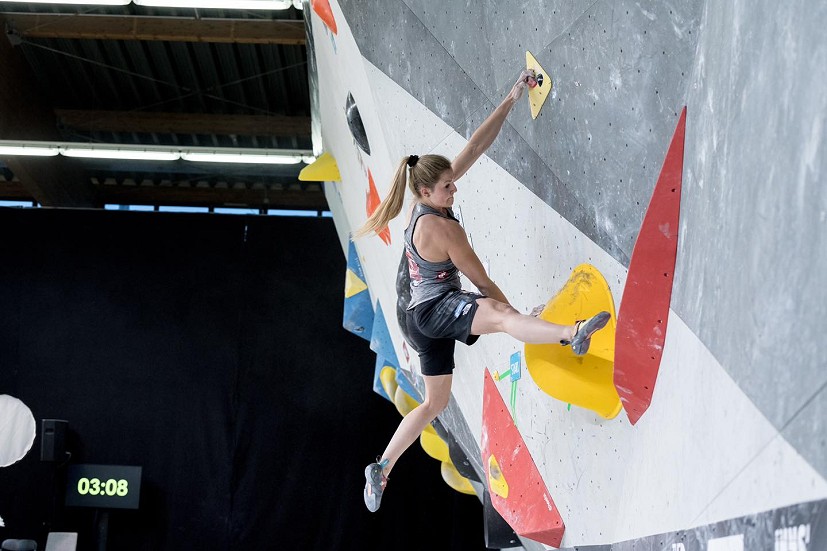
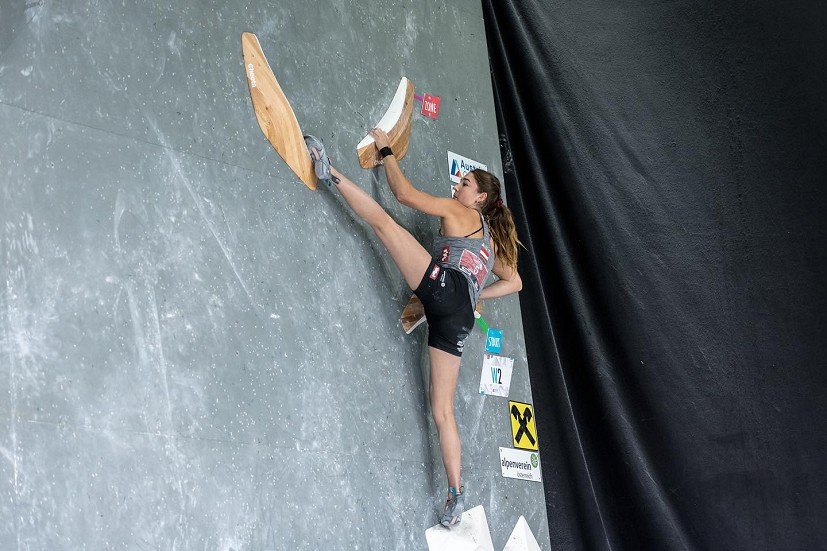
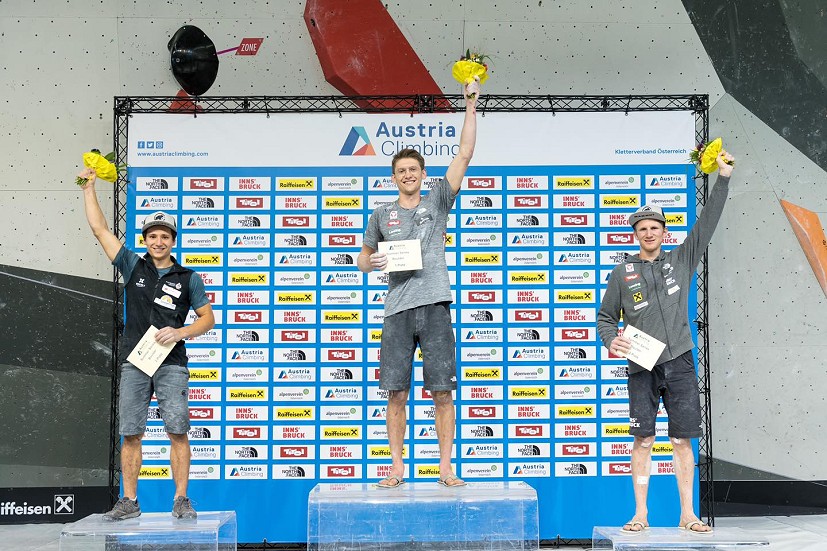
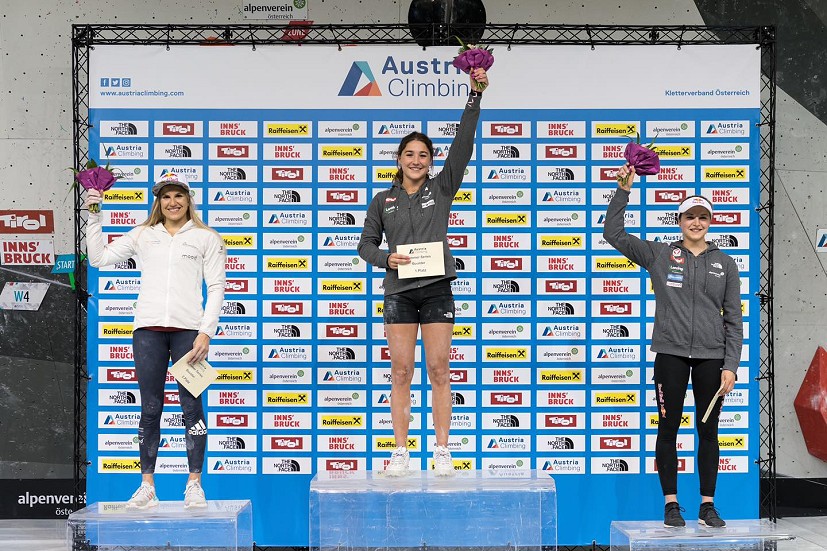




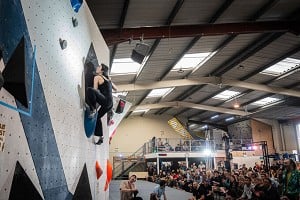
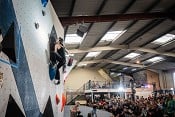
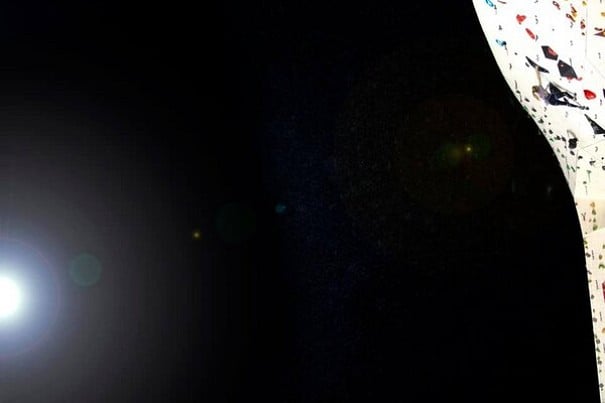
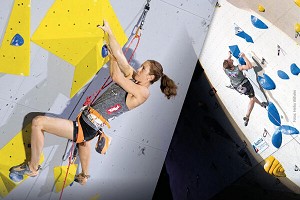
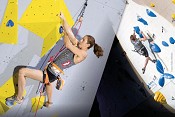
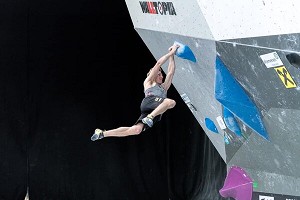
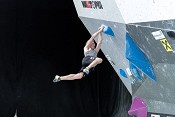
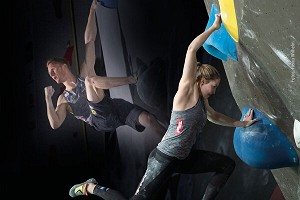
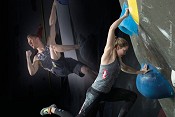
Comments